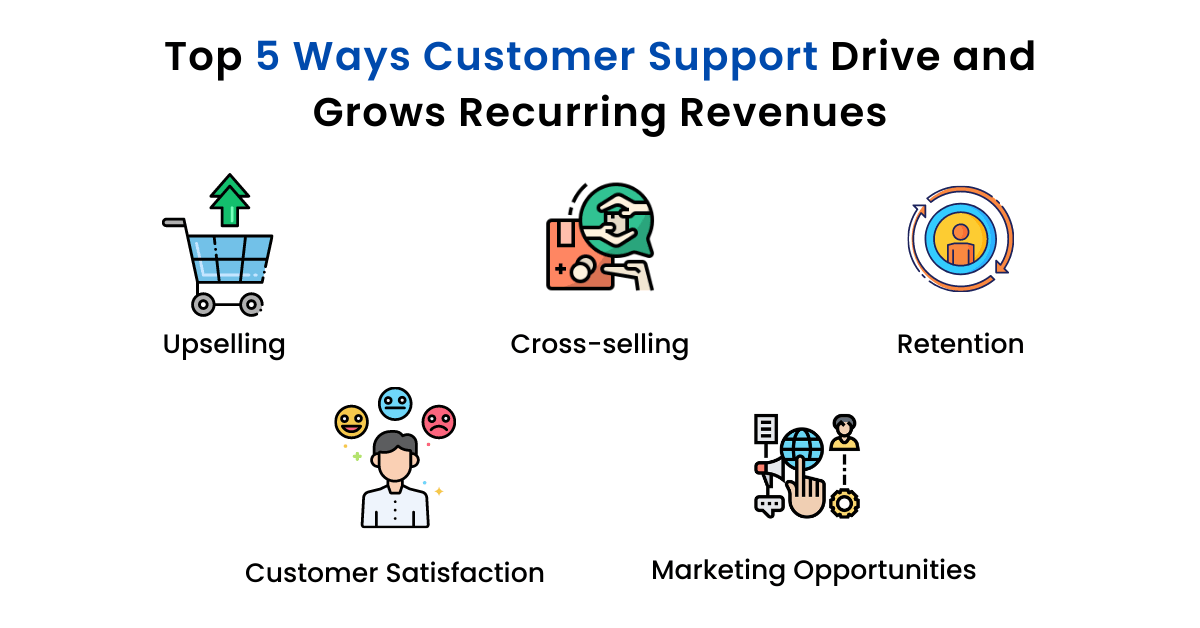
Introduction
Customer support is often overlooked and sometimes seen as a necessary evil; however, it can actually be of help to increase your business’ revenue. Here are some ways in which customer support can not only make your customers happy but also help to grow your company.
A recent study showed that customer support has a huge impact on a company’s bottom line. It is extremely important for an organization to have effective customer support. There are multiple avenues available for online customer service, depending on the needs of the business, certain types of services may be more effective than others. For example, live chat is ideal for start-ups and other quick-paced organizations who don’t wish to hold on to customer phone calls or email responses.
Live chats enable businesses to retain customers and expand their reach in real-time during slow hours when they otherwise wouldn’t be able to speak or interact with their target market. Live chat is also ideal for younger generations. For example, Millennials, or the Internet Generation, prefer communication in the form of a text message or email. Some members of this generation could not even remember the last time they used a pay phone.
Customer support channels that are accessible through texts and emails are fast becoming a more preferred way to connect with younger generations while providing an alternative to calling or messaging in person. IT support services are designed to provide technical assistance and expertise for businesses to ensure the smooth operation of their IT infrastructure and systems.

As businesses become more technologically reliant, customer service is evolving too with the help of technology. Today’s customers want access to companies and their products anytime, anywhere. In some situations, only an online method of communication will suffice for customer support issues that user experiences with software such as Facebook or Netflix.
Top 5 Ways Customer Support Drives and Grows Recurring Revenues

1. Upselling
Support has an important contribution to the revenue of the company. It is not just about answering questions and resolving issues, rather it can also be a driver for upselling. Upselling means selling more products to customers who are already buying what you sell. Understanding your customer’s needs is crucial in order to know when he or she is ready for an upgrade or additional product purchase.
In a recent blog post on Help Scout, Michael Simmons, CEO of Help Scout, explains how customer support reps can benefit their company by upselling through customer phone calls. In 1984, the then president of Mcdonald’s said “I love to sell. I’m good at it and I enjoy it.” It is possible for the most passionate customer service employees to turn a hobby into a career by upselling customers who may have been onboarded by phone.
Creating a business where phone calls are critical is great for customer support employees and facilitates employee retention. This method of upselling relies on the expertise of the sales staff, who must understand how to take advantage of a conversation. This model does not include automation, which means that sales are localized.
Asking someone via phone what they need, or getting them to commit, requires sales skillsets by the customer service rep.
2. Cross-selling
A common mistake is a belief that customer support should be focused on solving issues. However, an effective solution to this problem would be to make use of the opportunity that customer support offers to cross-sell (offer complimentary offerings) for the company’s other products. This way, companies can increase their revenue by soliciting additional purchases during online visits with customer service representatives.
One way this can be achieved is by analyzing factors such as usage data and product metrics, so it is possible to identify a list of items that customers frequently asked about during a call with a customer service representative. This list of frequently asked questions can be used to design and sell higher-value products, which customers are more likely to buy.
Cross-selling strategy is cost-efficient as it is placed as the last piece in the entire sales process. Hence cross-selling is the final sale made by a business, thus the customers won’t be faced with high transaction charges.
A simple tweet containing a list of frequently asked questions and offers of tailored products, services, or content, which may be of value to the existing customer, has great potential to gain interest from followers.
3. Retention
Although customer support is a critical part of growing your business, many marketers are still unaware of the importance of retaining customers after their initial purchase. Let’s look at an example to understand the impact: imagine you’re selling a $200 widget on Amazon that lasts for 50 hours of use. On day one, you have 100 sales and each buyer spends an average of $5 per hour on the widget.
The following week, one of the buyers tells their friends about how great your widget is and convinces five others to buy one. You’ve made another $1,000 in revenue.
A year later, the same customer reviews your widget on a blog and mentions it to a few of their friends. This time, ten people purchase your product after seeing the review — now you’re up to $2,500 in revenue over the original 100 purchases from six months earlier.
You’ve seen a 1% conversion rate (1 out of 100) on day one and a 10% conversion rate (1 out of 10) from word-of-mouth marketing after day 553.
4. Customer Satisfaction
Customers are willing to pay more to companies that offer better customer service. According to a research report published by the University of California, San Diego, and Cornell University, they found customers are willing to pay more when companies increase quality customer service by 1% or more.
According to the study, customers are willing to spend 50% more on a product if it’s marketed as being high-quality and reliable. The research team also found that customer satisfaction is key in determining whether people buy a product again or recommend it to others; 80% of customers will not recommend a company if they feel negative about their experience – regardless of how positive they felt while interacting with the company.
To find out how well companies are serving customers, the researchers used a dataset consisting of more than 32,000 purchases by over 1.1 million customers across 28 different retailers in the United States. The dataset included product data such as the item purchased and purchase information like the method of payment and timing of purchase.
Other factors that were considered in the study included return policy requirements, price reductions after a store visit, online customer support options, and consumer ratings on a variety of social media platforms.
5. Marketing Opportunities
The benefits of proactive customer service are twofold. If your business offers excellent customer service (whether you sell products or services), you cultivate goodwill for the company in the marketplace; this leads to referral business and increases brand awareness, which can again act as a driver to increase in revenue for your business.
The second – and arguably just as important – benefit of proactive customer service, is the opportunity it creates for your business to enter into direct interaction with your customers in ways that are otherwise improbable. It’s an opportunity to learn about what your customers want, and how you can help them make their lives better.
Proactive customer service is one of the most effective methods of marketing a business. It gives you the chance to show your customers how much you care about their needs, and also allows you to meet with them on a level playing field – not just trying to sell them something, but simply being there for them when they need help or have a question.

Conclusion
Customer support service is one of the most important tools that any company can have in order to grow recurring revenues and increase customer satisfaction. The key here is to go beyond basic customer service activities by using your customers’ feedback, insights, and data as a way of continually developing products that meet their needs. No matter how many people you have on staff, it’s impossible to please every customer all the time.





